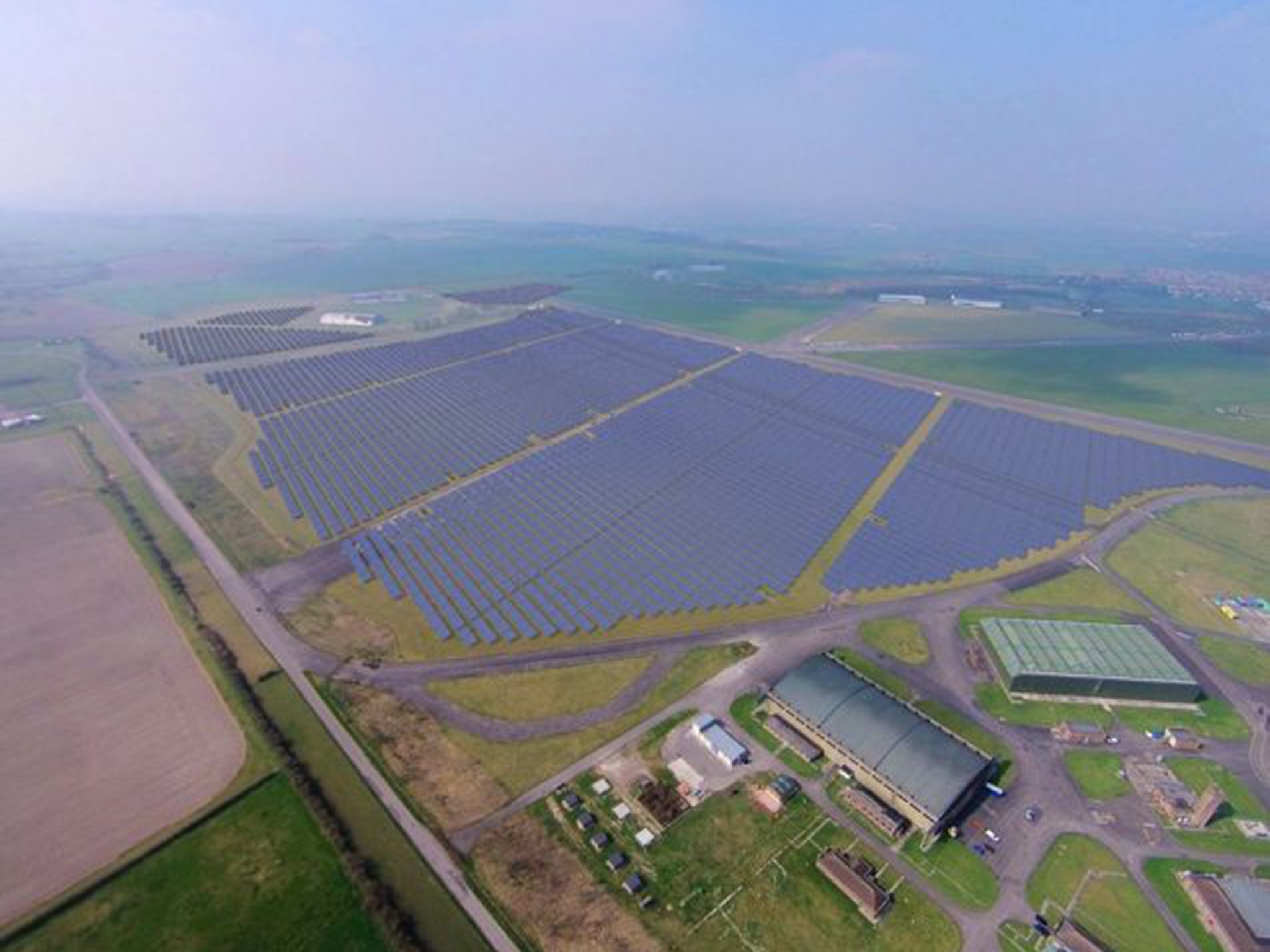Councils should use bonds to fund green infrastructure projects, says Lord Mayor of London
'There is great potential for the UK to follow the Scandinavian or North America models'

Councils should use bonds to fund much needed green infrastructure projects such as renewable energy and flood defences, according to the Lord Mayor of London. The UK’s first council solar bond was launched last week, and Sir Roger Gifford said there was tremendous scope for the country to follow the lead of the US and Swede, where municipalities have raised billions of pounds for green projects by selling bonds to the public.
Green bonds are good for the environment because they enable projects to be built that otherwise may not get off the ground and they provide a relatively safe investment for the public because they pay a much higher interest rate than a savings account, advocates say.
Furthermore, the profits they make generate income for the council, which can be spent on other services such as libraries and reduce the need for spending cuts or tax increases.
“The city of Gothenburg launched its own green bond for a project and were flooded with calls from local people wanting to get involved,” said Sir Roger, an experienced financier who heads the UK division of Sweden’s SEB Bank, which managed the Gothenburg green bond. “I don’t see why that shouldn’t happen in Leeds, or Bradford, or wherever. ”
Sir Roger added: “There is great potential for the UK to follow the Scandinavian or North America models. Mostly obviously for wind, but also for wave, solar and biofuel power – all those forms of renewable energy are perfect for this kind of climate-friendly financing. Waste management, water management, better water grids, better electricity grids, sustainable transport, sustainable housing – all of them are also excellent, as is air-pollution prevention.”

Sir Roger is also chairman of the Green Finance Initiative, set up to make London the capital of environmentally friendly banking after world leaders agreed to take strong action to tackle global warming in the Paris Agreement in December. His comments came as Swindon became the first council in the UK to issue a solar bond, a renewable energy bond, or a bond of any type to the public for more than a century.
The proceeds from the bond – which raised more than £100,000 of its £1.8m target in the first 24 hours – will fund a community solar farm in the village of Wroughton in Wiltshire. It will be run by Swindon Common Farm Solar, a community interest company owned by the council, which aims to generate all the power it needs from renewable sources by 2020.
The project is backed by Swindon borough council and will pay interest in cash twice a year – at a rate of 6 per cent per annum.
“For years, companies have been trying to find ways to make investing more accessible and understandable,” said a Swindon councillor, Dale Heenan. “Swindon’s Solar Bonds provide an opportunity for people to invest as little as £5 or more than £5,000, and enjoy better returns than their bank provides as they invest for their children’s future, their own retirement or just a rainy day.”
The bond issue is being organised by the investment group Abundance, which is also holding discussions with Bristol, Brighton and Newcastle about issuing their own green bonds.
Join our commenting forum
Join thought-provoking conversations, follow other Independent readers and see their replies
22Comments